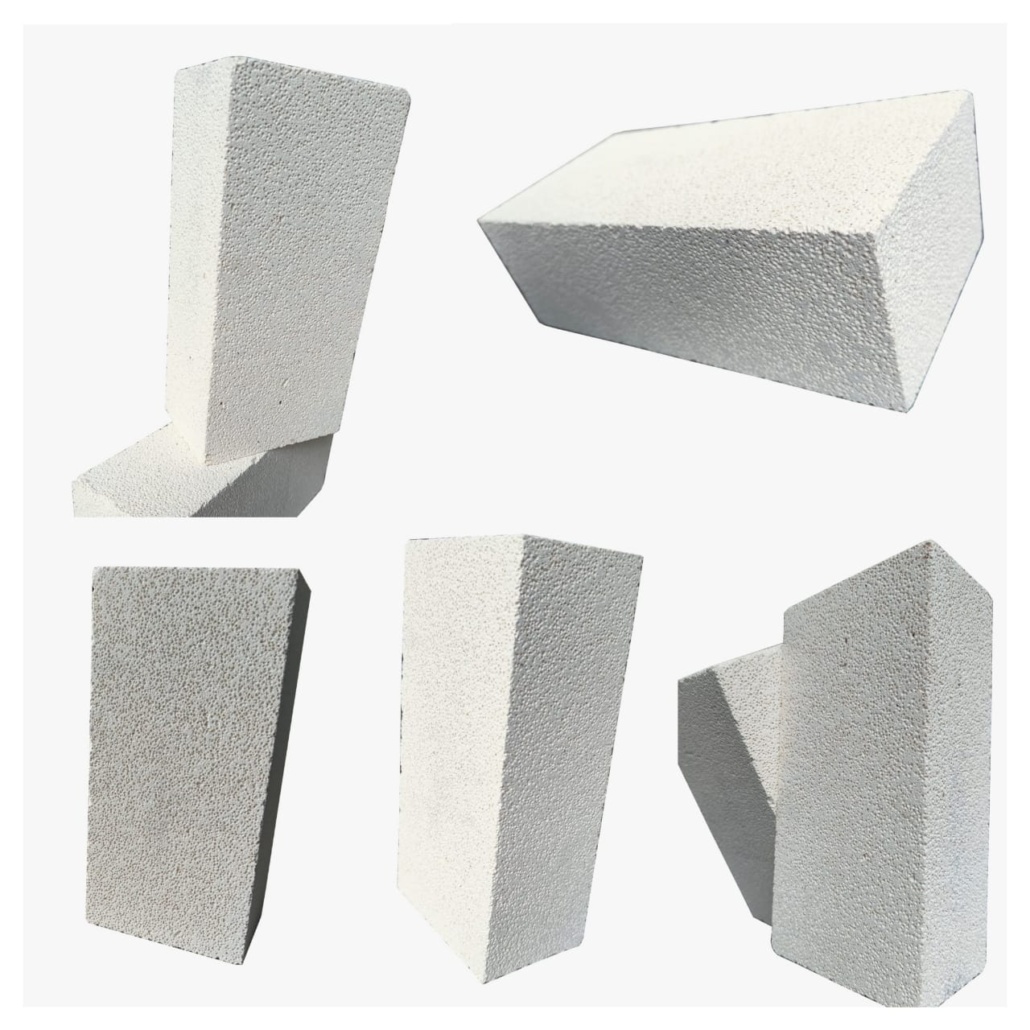Porosint bricks, also known as porous insulating bricks, are specialized refractory materials designed for certain high-temperature applications. These bricks are characterized by their high porosity, which provides excellent insulation properties. They are often used in refractory installations where thermal insulation and energy efficiency are important factors. Here are some common applications for porosint bricks in refractory installations:
- Kiln and Furnace Linings: Porosint bricks are used to line the walls of kilns and furnaces where temperature control and energy efficiency are crucial. Their high porosity helps reduce heat loss and improve the overall thermal performance of these systems.
- Heat Treatment Furnaces: In heat treatment applications, such as annealing, tempering, or stress relieving, porosint bricks can be used to create a thermally stable environment with minimal heat loss.
- Non-Ferrous Metal Melting: Porosint bricks are suitable for lining non-ferrous metal melting furnaces, where they help maintain a consistent and controlled melting process while conserving energy.
- Aluminum Holding Furnaces: They are used in aluminum holding furnaces to reduce heat loss and maintain the molten aluminum at a stable temperature.
- Ceramic Kilns: Porosint bricks are commonly used in ceramic kilns, helping to maintain uniform temperature profiles during the firing process.
- Boilers and Incinerators: In some industrial boilers and incinerators, where insulation is required to improve efficiency, porosint bricks may be used.
- Backup Insulation: Porosint bricks can also be used as backup insulation behind dense refractory linings, providing an additional layer of insulation to reduce heat transfer.
Technical Specification
| Name Of Test | Unit | JM 23 | JM 26 | JM 28 | JM 30 | |
| Maximum Hot Face Temperature | °C | 1300 | 1450 | 1500 | 1600 | |
| Bulk Density | gm/cc | 0.60 – 0.70 | 0.80 – 0.90 | 0.90 – 1.00 | 1.00 – 1.15 | |
| Cold Crushing Strength | Kg/cm2 | 10 – 15 | 20 – 25 | 30 – 35 | 40 – 45 | |
| Apparent Porosity | % | 60 – 65 | 60 – 65 | 55– 60 | 58 – 60 | |
| Reheat Change (For 24 hrs.) | % | -0.25 at 1350 °C in 8 hrs. | – 0.3 at 1450 °C in 8 hrs. | -0.15 at 1500 °C in 8 hrs. | -0.3 at 1550 °C in 8 hrs. | |
| Thermal conductivity(W/m.k) | @800 °C | W/mK | 0.43 | – | – | – |
| @1000 °C | – | 0.45 | 0.55 | 0.65 | ||
| Al2O3 | % | 35 – 40 | 55 – 60 | 65 – 70 | 70 – 72 | |
| Fe2O3 | % | 0.65 – 0.75 | 0.80 – 0.90 | 0.70 – 0.80 | 0.70 – 0.80 | |
When using porosint bricks for refractory installations, it’s important to follow manufacturer guidelines and consider factors such as the operating temperature, thermal conductivity, and porosity of the bricks to ensure they meet the specific requirements of the application. Proper installation techniques are also essential to ensure the longevity and effectiveness of the refractory lining. Consulting with a refractory specialist or the manufacturer of the porosint bricks is advisable to ensure the correct selection and installation of these materials.






